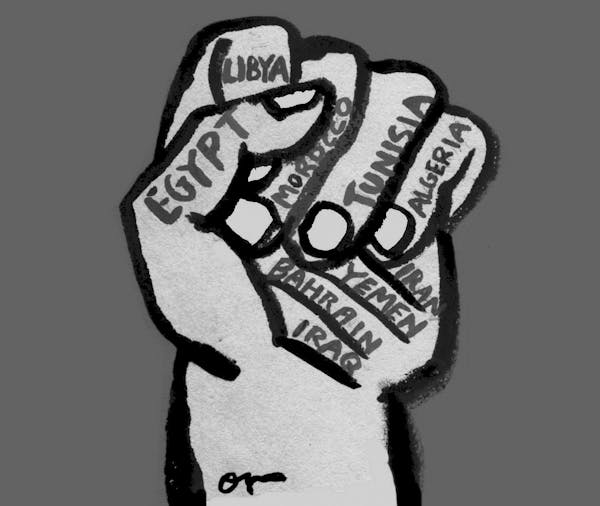Three years ago, many Americans were focused on change in the Middle East. Exhilaration, distress, frustration, triumph. But then it got really complicated, and some bad things happened, and maybe the wrong people won an election in Egypt. And now Ukraine and a missing plane fill most of the foreign news space in our heads and the headlines. But what happens in this region, with its volatile combination of energy, extremism, trade routes and great power politics, still matters.
To start with, we need to realize this region is even more complex than we think. We usually think of the Middle East as Arabs who are Muslims. Mostly true, but Turkey and Iran, on the edges of this region, are Muslims but not Arabs. They have long ruled over Arabs — Turkey as the Ottoman Empire — or competed with Arabs for influence — Iran, formerly Persia — with consequences that persist today.
Then we have to remember that all Arabs and all Muslims aren't the same, any more than Swedes and Italians are the same just because both groups are historically Christian Europeans. Islam is a religion, but it exists in multiple cultures and nations with separate histories. In Tunisia, where the "Arab Spring" began, Islamic conservatives and secular politicians have been able to agree on a new Constitution, retaining strong protections for women. Morocco, with a respected, three-century old monarchy, stayed peaceful and made some modest reforms. Saudi Arabia, in contrast, suppressed demonstrators at home, sent troops into neighboring Bahrain, uses its oil money to buy off dissent with increased wages and scholarships — and still won't let women drive. It is now bankrolling the new, military-backed regime in Egypt, the one that overthrew the elected, if problematic, government that arose from the Arab Spring. One could say that Saudi Arabia doesn't like any country that has meaningful elections — afraid someone might get the idea they should start having them too.
For many Americans, the big, often unstated, question is, "Can Arab — or Muslim — states be democracies?" It's not an easy question. Freedom House ranks Turkey, Tunisia and Morocco as "partly free" — but Egypt, Algeria, the Gulf States and more are not. Is this religion, or culture?
Islam as a whole stresses the direct relationship between God and humans. There is no priestly intermediary. Some Muslims see Islam as inherently democratic because of this. Yet, historically, most Muslim countries have been ruled by monarchies of one sort or another. But then so were most Christian countries, until the last 200 years or so. Culture and history, not theology, can be seen as the stronger reasons for how a country is governed. Certainly Turkey and Senegal have shown great democratic progress.
But Arab Muslim countries seem to have had a harder time. Human Development Reports prepared by Arab experts in the early 2000s identified barriers to progress across the Arab world: "The Arab world finds itself at a historical crossroads. Caught between oppression at home and violation from abroad, Arabs are increasingly excluded from determining their own future."
Arab countries did have revolutions after each of the World Wars — but those revolutions replaced kings with autocrats. They made helpful changes at first, but soon settled into the familiar patterns of oppressive regimes. The Arab Spring was the long-expected but always unpredictable — and still unfinished — result of that. Because those revolutions were against colonial powers — Turkish, British, French — Arab politicians have often found it easier to gain political support through complaining about past violations than making difficult reforms today. This is a common post-colonial bad habit, not a religious one, one seen in Africa and Asia as well. And the secular nature of those earlier revolutions became one cause of the religious extremism we see, a violent reaction to suppression.
Is there change afoot? Actually, yes, though we see little of it in Western news. Salman al-Awda, a Saudi cleric with 4.5 million Twitter followers, has evolved over his career to see democracy as the only legitimate form of government, and to challenge his own country's fear of change. He is not alone. Change will not come quickly, but we need to know more about the ferment, and support it, quietly, where we can.
Bill Davnie, of Minneapolis, is a retired Foreign Service Officer, who served in Iraq, the former Soviet Union and Southeast Asia, and studied Islam in Indonesia.
The Star Tribune Editorial Board and the Minnesota International Center are partners in " Great Decisions," a monthly dialogue discussing foreign-policy topics. Want to join the conversation? Go to www.micglobe.org.
Ukraine aid vote is a domestic and geopolitical inflection point



